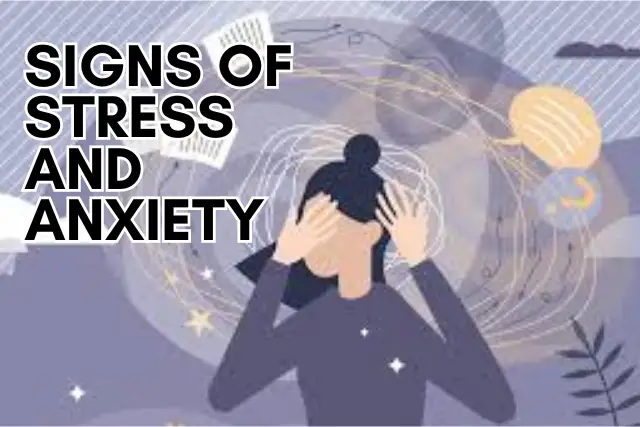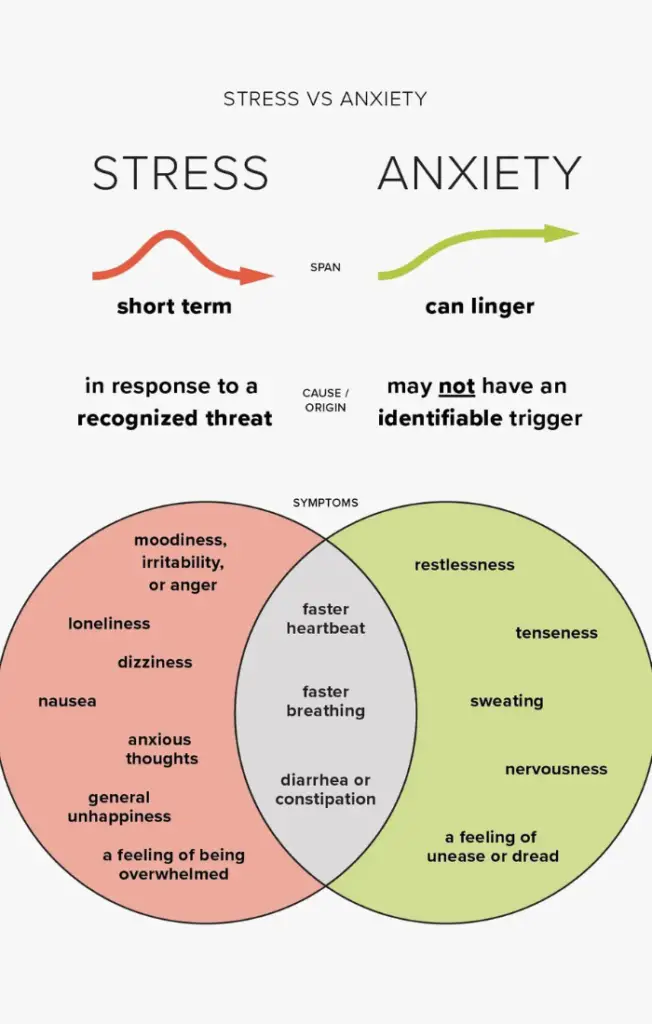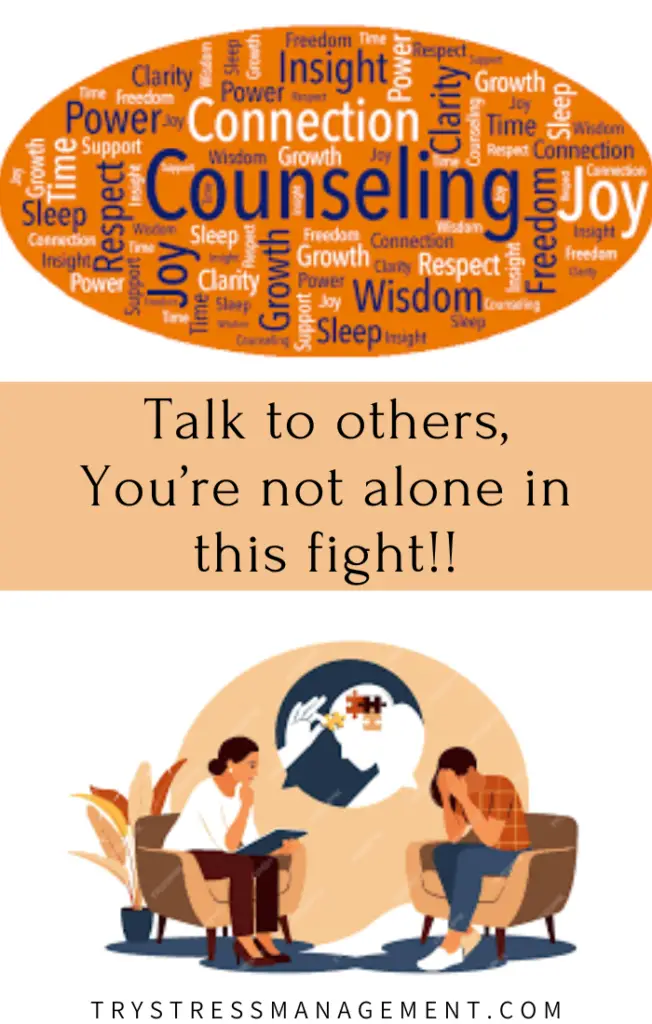In the hustle and bustle of modern life, stress and anxiety have become unwelcome companions for many. The weight of daily challenges, coupled with unforeseen pressures, can take a toll on our mental well-being. However, within the realm of counseling lies a beacon of hope and relief. Welcome to “A Comprehensive Guide to Counseling for Stress and Anxiety,” where we embark on a journey to unravel the complexities of these common adversaries.
In this guide, we’ll delve into the nuances of stress and anxiety, understanding their roots and impact. More importantly, we’ll explore the transformative role that counseling plays in navigating these challenges. From recognizing the signs that signal the need for counseling to finding the right counselor and understanding the counseling process, this guide is your compass to reclaiming peace and balance in your life. Let’s begin the exploration of counseling as a powerful ally on the path to a calmer, more resilient you.
Table of Contents
Understanding Stress and Anxiety
Stress and anxiety are like those constant companions tagging along on our life journey – emotions that can seriously mess with our heads and bodies. Stress usually kicks in when life throws us curveballs, setting off our “fight or flight” mode. It could be triggered by work deadlines, relationship hiccups, or money worries, creating a whole bunch of chaos inside us. Now, anxiety is like cranking up that unease dial, often bringing on way too much worry or fear, even when there’s no obvious danger around. The tricky part? Both stress and anxiety can team up and mess with us physically, causing tense muscles, fatigue, and messing with our sleep.
So, in the middle of this emotional rollercoaster, figuring out what’s triggering these stress and anxiety tagalongs is step one to dealing with them. Whether it’s the heart-pounding stress of a looming deadline or the never-ending worry about what’s around the corner causing anxiety, knowing what you’re up against is the first big move. Armed with this understanding, you’re better equipped to tackle your mental ups and downs, and that’s where things like counseling can jump in to bring some much-needed relief and emotional balance.
The Role of Counseling in Stress and Anxiety Management
Imagine counseling as a trusty guide through the stormy seas of stress and anxiety, shining a light toward calmer shores. It’s like a superhero in the emotional rescue squad, handing you the tools and support to navigate the twists and turns of your mind.
What makes counseling super effective is that it’s not a one-size-fits-all deal. Nope, it’s a personalized intervention, kind of like a therapy buffet with options like Cognitive Behavioral Therapy (CBT) or Mindfulness-based approaches. These methods aren’t just fancy terms; they’re like power-ups that help you dig into the roots of your stress and anxiety, giving you a toolkit for healthier coping and a chance to reshape how you think.
Picture counseling as a judgment-free zone – a space where you can spill your thoughts and emotions without worrying about someone raising an eyebrow. In those sessions, you’re building a trust bridge with your counselor, creating a solid foundation for collaboration. It’s like having a co-pilot in this journey toward emotional well-being, steering you away from the turbulent waves of stress and anxiety and guiding you to a more empowered, steady state of existence.
Signs That Indicate the Need for Counseling
Persistent Overwhelming Emotions: If you find yourself regularly overwhelmed by emotions such as anxiety, sadness, or anger, and it feels unmanageable.
Disruption in Daily Functioning: A noticeable disruption in your ability to perform daily tasks, like going to work, maintaining relationships, or completing routine activities.
Physical Symptoms: Unexplained physical symptoms like headaches, stomachaches, or changes in sleep patterns that persist despite attempts to address them.
Isolation and Withdrawal: Avoiding social interactions, withdrawing from friends and family, or experiencing a desire to isolate oneself from others.
Difficulty Coping with Life Changes: Struggling to cope with major life changes, whether positive or negative, such as a job loss, divorce, or the birth of a child.
Persistent Negative Thought Patterns: Engaging in repetitive and intrusive negative thoughts that impact your overall outlook on life.
Substance Abuse Issues: Increased reliance on substances like alcohol or drugs as a means of coping with emotional distress.
Significant Relationship Issues: Repeated conflicts or difficulties in maintaining healthy relationships with others.
Intrusive Traumatic Memories: Experiencing intrusive and distressing memories or flashbacks related to traumatic experiences.
Decline in Self-Esteem: Noticeable decreases in self-esteem, self-worth, or a pervasive sense of hopelessness about the future.
Recognizing these signs is an important step in understanding when counseling might be beneficial. If you find yourself resonating with several of these indicators, seeking the support of a counselor can be a proactive step towards emotional well-being and personal growth.

Finding the Right Counselor
Finding the right counselor is akin to discovering a fitting travel companion for your unique journey towards emotional well-being. It involves more than just a random pick; it’s about finding someone whose approach aligns with your needs and personality. Start by considering the counselor’s specialization and expertise, ensuring they have experience in areas relevant to your concerns.
Compatibility matters too – a counselor with whom you feel a sense of connection and trust can foster a more effective therapeutic relationship. Take the time to explore potential counselors’ backgrounds, therapeutic approaches, and reviews to gauge their suitability. Remember, this process is about creating a collaborative and supportive space for your personal growth, where you feel understood and empowered to navigate the challenges ahead.
What to Expect in a Counseling Session
Embarking on a counseling session is a courageous step toward self-discovery and emotional well-being. The first session typically involves an introduction, where you and your counselor get to know each other. Expect questions about your background, current challenges, and what you hope to achieve through counseling. This initial conversation sets the tone for the therapeutic relationship, establishing trust and rapport.
As sessions progress, you can anticipate open dialogue in a safe and confidential space. Your counselor may guide discussions toward identifying patterns of thought or behavior contributing to your concerns. Together, you’ll explore coping mechanisms and develop strategies tailored to your unique needs. It’s essential to understand that counseling is a collaborative process, and your active participation is encouraged.
Moreover, don’t be surprised if emotions arise during sessions – this is a natural part of the therapeutic journey. Remember, each counseling session is a step forward on your path to a more empowered and balanced life.
Benefits of Counseling for Stress and Anxiety
Bouncing Back Stronger: In counseling, you get this toolkit for building emotional strength. It’s like having a set of superhero tools that help you bounce back from stress and anxiety even stronger than before.
Discovering Your Emotional Roots: Counseling is like a deep dive into your emotional world. It’s not just about dealing with stress; it’s about figuring out why it hits you in the first place. You end up discovering the roots of your stress and anxiety, like uncovering the hidden chapters of your own story.
Custom-Made Coping Strategies: Imagine having a personal coach for your mind. That’s what counseling does. It introduces you to tailored strategies, like Cognitive Behavioral Therapy (CBT), that are custom-made to reshape those not-so-helpful thoughts and deal with stress in a much healthier way.
No Judgments Allowed: Picture counseling as a judgment-free zone. You can spill your thoughts and feelings without worrying about someone giving you the side-eye. It’s all about open conversations and facing challenges without the fear of being judged.
Team Up with Your Counselor: In counseling, you’re not alone in this journey. Your counselor becomes your trusty sidekick, forging a strong bond that’s all about trust and teamwork. It’s like having someone who gets you, supports you, and walks with you through the ups and downs.
Life Gets an Upgrade: As you roll through counseling, it’s like giving your life a serious upgrade. Relationships get better, you feel better about yourself, and suddenly, you’re the one holding the reins on your emotional well-being.
You’re in Charge: Counseling hands you the reins of your mental health. It’s about taking charge, discovering who you are, and having the tools to handle whatever comes your way. You end up feeling more empowered, more balanced, and ready to rock this thing called life.

Online Counseling Options
Virtual Support Anytime, Anywhere: Online counseling brings therapy to your fingertips, allowing you to access support from the comfort of your own space, whether that’s your living room or a cozy coffee shop.
Flexible Scheduling: No need to shuffle your schedule around. Online counseling offers flexibility, letting you book sessions that fit seamlessly into your life, making mental health support more accessible than ever.
Wide Range of Therapists: You’re not limited by geography. Online counseling gives you access to a diverse pool of therapists, making it easier to find the right match for your needs and preferences.
Choice of Communication: Whether you prefer video calls, phone chats, or messaging, online counseling provides options. It’s like having a virtual menu where you get to pick the communication style that feels most comfortable for you.
Reduced Stigma: For some, the idea of walking into a therapist’s office can be daunting. Online counseling removes that barrier, reducing the stigma associated with seeking mental health support.
Enhanced Privacy: Your sessions can take place in a private setting of your choice. It adds an extra layer of confidentiality, allowing you to open up without worrying about who might overhear.
Consistent Support: Online counseling provides a consistent support system. Whether you’re traveling or just having a hectic week, you can maintain your therapeutic journey without disruptions.
Integrating Self-Care Practices with Counseling
Mindful Moments: Integrate mindfulness into your routine, whether through meditation, deep breathing, or mindful walks. These practices enhance self-awareness and complement counseling insights.
Physical Activity: Engage in regular physical activity that suits your preferences, contributing to improved mood and overall mental health. Discuss exercise routines and their impact in counseling sessions.
Healthy Sleep Habits: Prioritize quality sleep, establishing a bedtime routine that promotes relaxation. Sleep is a crucial element in emotional regulation and resilience.
Journaling: Maintain a journal to express thoughts and emotions between counseling sessions. Journaling provides an additional outlet for reflection and can be discussed with your counselor.
Nutrient-Rich Diet: Adopt a balanced and nutritious diet to support your mental and physical health. Discuss the relationship between diet, mood, and energy levels during counseling sessions.
Setting Boundaries: Learn and practice setting healthy boundaries in various aspects of your life. This may involve discussions with your counselor about interpersonal dynamics and self-advocacy.
Digital Detox: Consider periods of digital detox to reduce information overload and promote mental clarity. Discuss the impact of technology on your well-being in counseling sessions.
Regular Check-Ins: Schedule regular check-ins with yourself to assess your emotional state and the effectiveness of self-care practices. Use these reflections as valuable insights to share with your counselor.
Conclusion
In the intricate dance of stress and anxiety, this comprehensive guide has illuminated the path toward healing and balance. From understanding the roots of these emotional companions to embracing the transformative power of counseling, we’ve navigated through the complexities of the human experience. Recognizing the signs that herald the need for counseling, finding the right counselor as a supportive ally, and understanding the counseling process become crucial steps on this journey.
The benefits of counseling, coupled with the accessibility of online options, offer a beacon of hope in the pursuit of emotional well-being. Integrating self-care practices with counseling emerges as a powerful strategy, fostering holistic growth and resilience.
As we conclude this guide, remember that each step toward self-discovery, aided by counseling, propels you toward a more empowered, balanced, and resilient version of yourself. The adventure continues, and the promise of a calmer, more resilient you await on the horizon.



